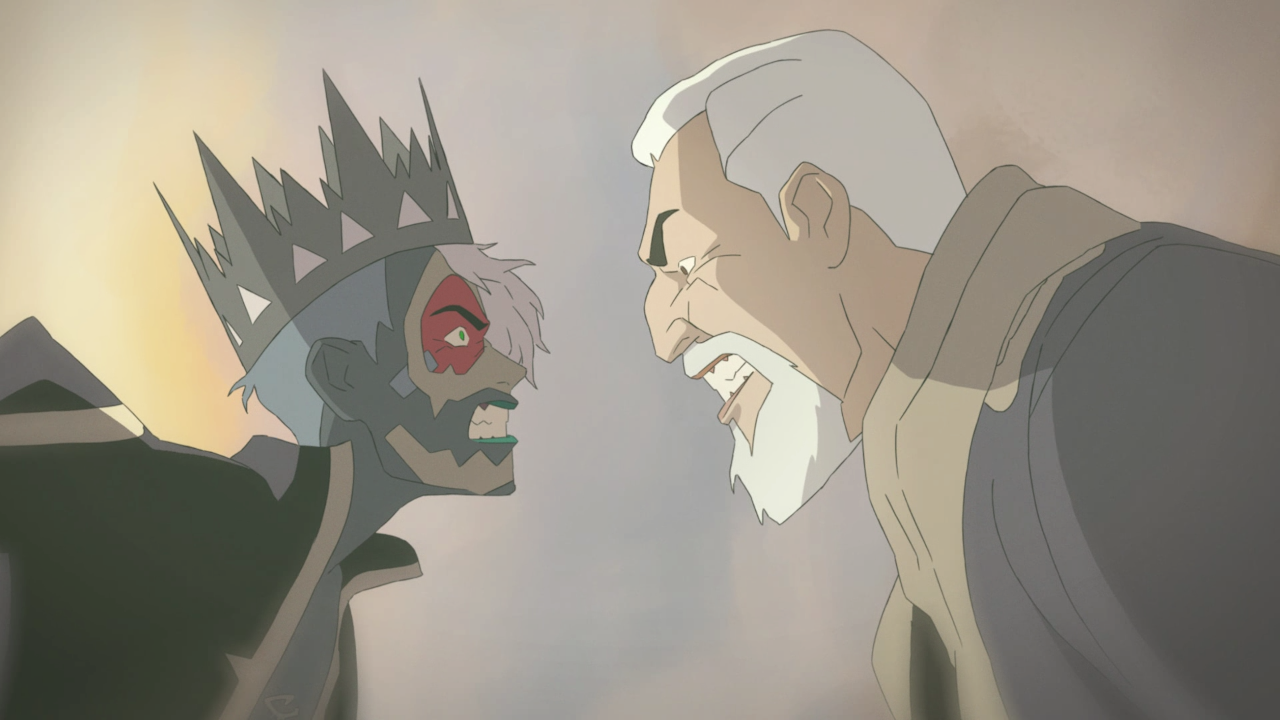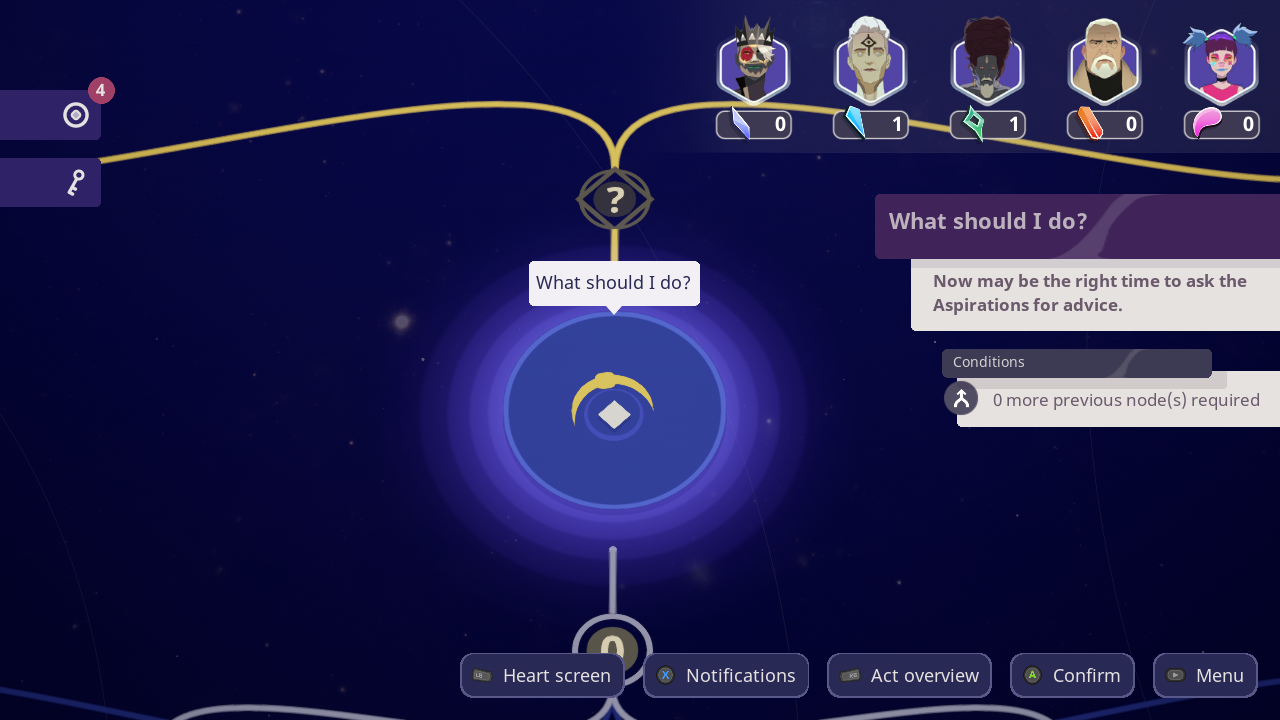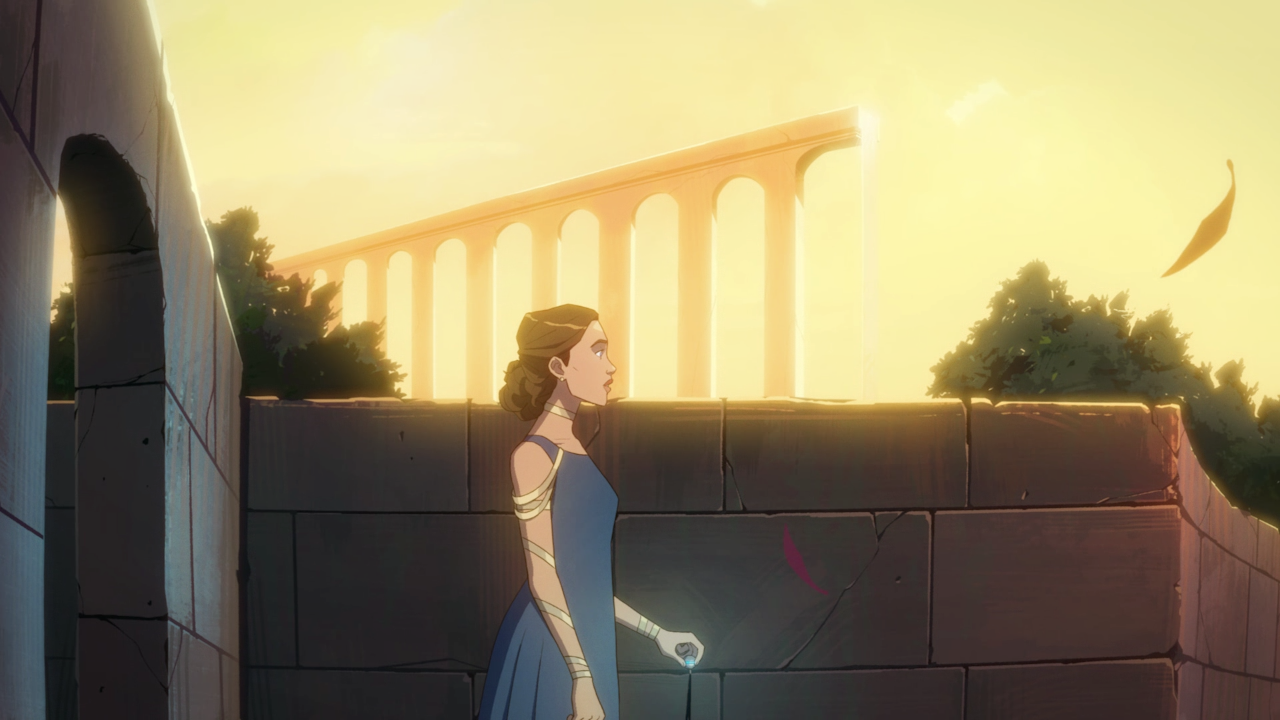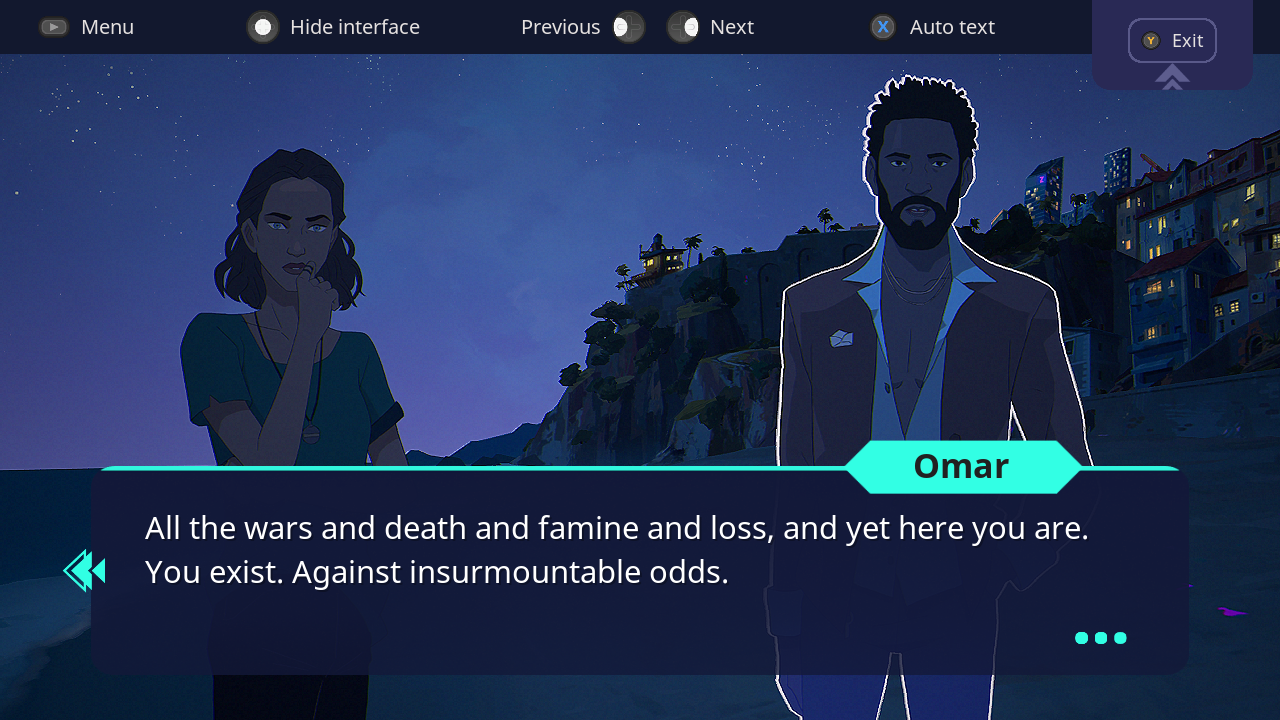
I am, as both my friends and my enemies will quite happily tell you, many things. One of these things, now and again, is ‘fickle’. Therefore, when Don’t Nod’s latest started to remind me of something, it took me a while to realise what that something was. It was Twine; an open-source tool to create and share stories with multiple paths. Choose your own adventure tales, basically. I’d dabbled with it briefly before deciding it required more time and talent than I could offer, so I didn’t immediately recognise its ghost for what it was.
“But,” I hear you cry (for many are my powers), “choice-based narrative games are nothing new, you fool. They certainly predate Twine”. Although I don’t appreciate the tone of your voice, you’re quite right. However, the memory of Twine snapping into view of my mind’s eye made me realise that, where I thought Harmony was doing something new, it is in fact doing what Don’t Nod has been doing for years, but in a surprisingly transparent way.

Harmony differs from previous Don’t Nod narrative games in a few ways. One of the most interesting ones is what is named in-game as the Augural. Your character has the power to see into the future to a limited extent. In gameplay terms, this means that you get a sniff of possible paths the story can wander down, and so you can try to take actions most likely to lead you to your desired outcome. This is represented in-game by a sort of flowchart… or the kind of thing you might create when making a basic Twine story.
Initially, I thought this was new, but it’s not of course. The Life Is Strange games, for example, all have something like this invisibly holding the experience up. The difference is that the inner workings are made explicit here. You’re shown how many deviations the story could take at various points, you’re told which events are compulsory before the story can move forward, and you’re even told what you did or didn’t do that prevents you from accessing a particular scene or story development. The question is: Is this a good idea?
One consequence of ramming the player’s nose into the fleshy innards of the narrative adventure genre, is that they’re thrown into the Augural regularly. /Very/ regularly. Some people will feel that these are unwelcome interruptions to the story, I’m sure; but I found myself oddly willing to accept this as part of a new play experience. If anything, I appreciated the ability to keep an eye on how well I was doing in my aim to follow a certain path or achieve a particular goal.
One thing I did not expect at all, and was incredibly impressed by, was the moment in the story where the Augural—a relatively plain and aesthetically unambitious thing—suddenly became a powerful storytelling device. There comes a time in the narrative where your character is hit by intense grief—or at least there was in my playthrough. During this brief but affecting period of the story, the Augural is nothing but a straight line with no choices. The events that you land on are prosaic moments that suddenly require immense willpower. Getting out of bed. Having a shower. It’s perhaps ironic that the best use of the Augural is the section where it gives you no agency whatsoever.
I hate to say it—because I love the idea, and sometimes it works brilliantly—but overall, it doesn’t work very well. Sometimes, I found myself having to choose between a decision that would ordinarily be my first choice, and a decision that makes more sense for my overarching goal. I almost resented the game at these moments, though perhaps the fault there lies with me.
Keep up to date with the most important stories and the best deals, as picked by the PC Gamer team.
Decisions, decisions

More generally, Don’t Nod comes so very close to hitting the perfect balance between openness and surprise when it comes to the story, but it doesn’t quite get there. More than once, I felt betrayed when a path appeared on the Augural seemingly out of nowhere, one that I wanted to follow but found myself already barred from. Also, this level of transparency is a gamble, in that you have to be super duper sure everything’s sewn up tighter than Simon Cowell’s face. And, er, it’s not.
At a huge turning point in the story, I was forced to go down a path that didn’t actually tie up with my previous actions, which in turn led to comments and events that referred to something I made a very specific decision not to do. This grated on me enormously, but I was soothed somewhat by the final leg of the story, when the potential of this way of presenting a narrative adventure could again be seen. As all of my previous choices finally came hurtling down the road (to a somewhat messy conclusion), choice was snatched away from me. I could see multiple paths, but could only ever head down one. Rather than being frustrated by a lack of power, I found myself satisfied by this evidence of a story that was mine, due to the choices that I made.

I love (most of) Don’t Nod’s games, and part of that is due to the traditional way in which their other narrative adventures operate. I enjoy making decisions with no idea of how, or even if, they will affect events later. This is especially enjoyable in tense scenes, where the consequences are severe (or at least, it seems that they will be), and there’s no way of knowing which choice is the ‘right’ one. That element of the unknown is an important part of the appeal.
Nonetheless, I see this approach to storytelling as an alternative rather than a superior or inferior way of doing things. Harmony is a proof of concept, an almost-but-not-quite glimpse of how great this idea could be. I hope Don’t Nod, or somebody else, gives it another go. I’ll happily be my own fortune teller again.

